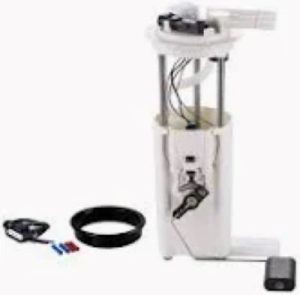Timing is absolutely critical to the fuel pump, insuring exactness in fuel delivery that directly influences engine performance, efficiency, and longevity. In internal combustion engines, timing facilitates the fuel pump in delivering fuel exactly at intake and combustion cycles of the engine. Small-scale mis-timing brings distortion in the air-fuel ratio, which on one hand creates conditions for poor combustion and hence power output, while on the other hand, it gives rise to higher emissions. Most modern engines run on very precisely controlled timing, thus creating an optimal air-to-fuel ratio at any given time. This is all the more true in a higher revolution per minute range, since any millisecond lag in combustion will result in degraded performance.
Timing of the fuel pump is especially critical in diesel engines. Since diesel engines operate on the principle of compression ignition-that is, the fuel must be injected into the cylinder at a precise point during the compression stroke to ignite properly-delayed timing results in incomplete combustion, raises particulate emissions by up to 30%, and reduces fuel efficiency by some 10-15%. Early or late fuel injection also puts stress on the engine components due to combustion pressures occurring out of phase with the motion of the piston, which can increase wear or even result in engine knock.

Fuel pumps with adjustable timing mechanisms allow a mechanic to fine-tune fuel delivery to suit a specific power or efficiency requirement, as in some high-performance or older diesel engines. Precise timing, and thereby maximum power output with minimum wear, is set by the fuel system. Minor changes in timing can provide 5-10% improvements in horsepower with no additional fuel consumption, which is where most mechanics would tend to focus when working on performance tuning.
In modern vehicles, the ECU plays a great role in managing fuel pump timing, especially for engines with variable timing systems. This is an action based on the throttle position, engine load, and RPM, turning it in at the appropriate time for fuel delivery. It makes this dynamic adjustment to support power and efficiency, especially under changing driving conditions like sudden accelerations or climbing inclines.
As Henry Ford, one of the pioneers in the automobile world, once said, "Coming together is a beginning; keeping together is progress; working together is success." The Synchronization of fuel pump timing and engine demand is that sort of unity and assures the engine will do its best. For reliable, precisely timed Fuel Pump options, visit Fuel Pump.